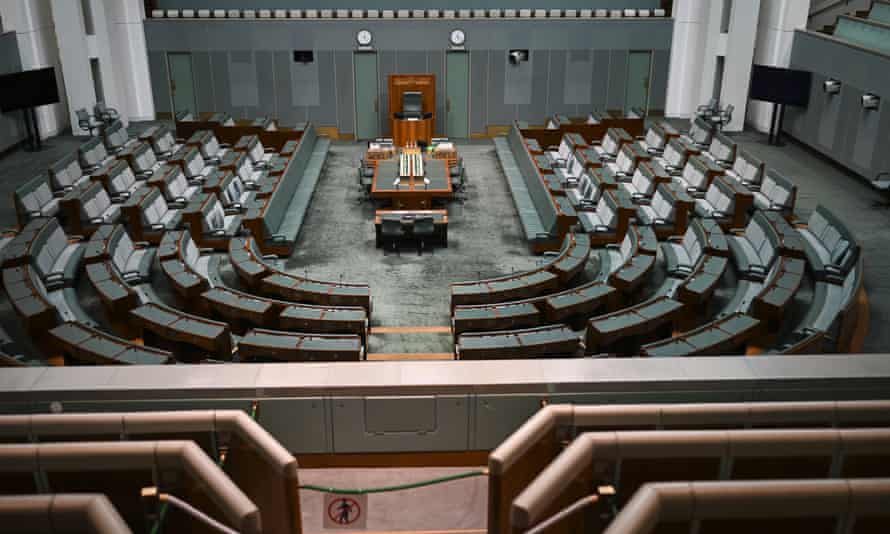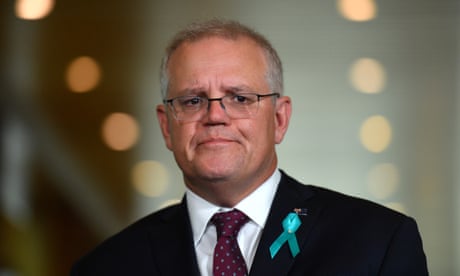Australia should implement a parliamentary code of conduct with strict, enforceable anti-corruption laws, report says.

‘Nurses, teachers, and public servants are bound by codes of conduct. Why do we give our elected representatives a free pass to behave as they please?’ says Han Aulby of the Centre for Public Integrity.
Last modified on Mon 12 Jul 2021 15.02 AEST
The failure to implement a parliamentary code of conduct has made Australia’s regulation of federal politicians’ conduct the weakest among comparable nations, research has found.
Unlike the United Kingdom and Canada, Australia lacks any enforceable code governing the behaviour of MPs, and unlike New Zealand, it has no system to regulate the ethics of ministerial staffers.
The only formal regulation of ethics in Australia’s parliament is achieved through the ministerial standards. But the standards do not apply to MPs more broadly, are a collection of principles rather than a comprehensive set of rules, and are enforced at the whim of the prime minister, rather than any independent body.
A new paper from the Centre for Public Integrity has found Australia’s system is considerably weaker than that in the UK, Canada, and New Zealand.
The UK has codes of conduct for ministers, MPs, lords, staff and special advisers. The ministerial code is enforced by the prime minister, but the codes applying to the House of Lords and House of Commons are upheld by independent commissioners.

Canada has laws and a code for conflicts of interest that apply to ministers, MPs, and parliamentary staff, overseen by an independent conflict of interest and ethics commissioner. The commissioner can institute formal investigations, and issue fines and compliance orders.
New Zealand has a code of conduct that applies to ministerial staffers. It also has a cabinet manual for ministers but that is not independently enforced.
The Centre for Public Integrity executive director Han Aulby said Australia “urgently needs a code of conduct” for MPs and their staff.
“Nurses, teachers, and public servants are bound by codes of conduct. Why do we give our elected representatives a free pass to behave as they please?” Aulby said.
“The code must follow examples set by the UK and Canada. It must be independently enforced, combine broad principles and specific rules, and include policies on bullying and sexual misconduct.”
It adds to the list of integrity reforms the Australian government is being urged to make.
The Coalition’s proposed integrity commission model, known as the Commonwealth Integrity Commission, is still out for consultation, and no legislation has been introduced to parliament.
On Friday, the Guardian revealed that the CIC would have no scope to investigate the vast majority of integrity scandals made public in recent years.

Of the 40 scandals analysed by the Guardian, just two could be investigated by the CIC.
That’s because the CIC requires a “reasonable suspicion” of criminality before it can begin an investigation. Experts like Anne Twomey, of the University of Sydney, have warned that will leave the CIC powerless to investigate most forms of corruption.
“We already have people who investigate criminal offences,” Twomey said. “They are known as police. We also have people who prosecute those offences.
“The reason for having an anti-corruption body is to do something different – to investigate behaviour which is corrupt, but does not necessarily amount to an offence.”
No comments:
Post a Comment